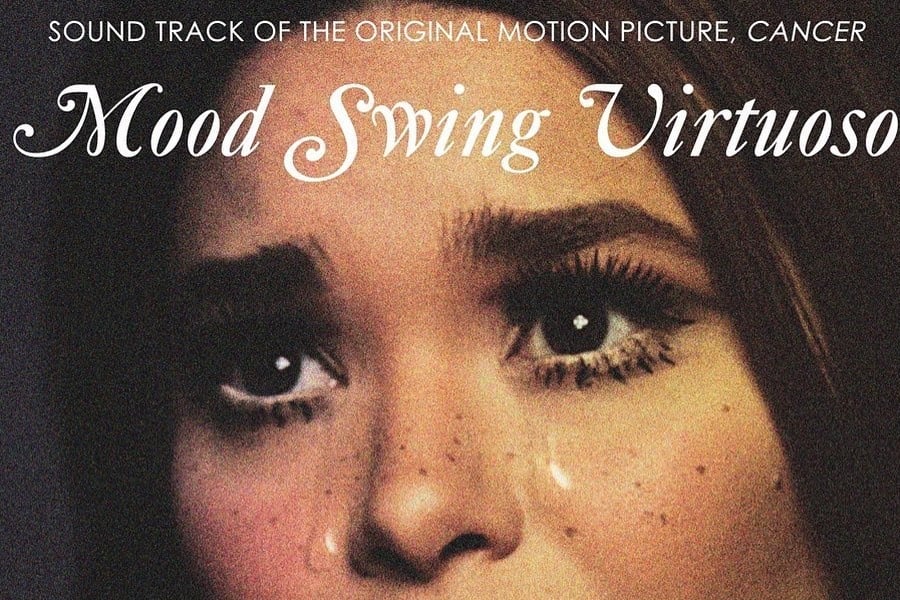
We've seen in recent years, the climb in interest our collective society has had in astrology, its appeal, and how it applies to our day to our day relations. These days, you can't seem to scroll past a TikTok or Instagram feed without seeing a post from an astrologer giving their two cents on a birth chart or astrological transit. Apps like Co-Star and The Pattern have taken hold of our morning rituals, conversations with friends and loved ones are coloured with tidbits formulated from the algorithm explaining it's just our Scorpio Venus playing havoc again. In spite of this, there has been a disturbing trend under the surface of astrology, one that isn't new but that continues to lay question to its validity.
We know that astrology is typically catered towards the female population, whether it be through social media, advertising or other forms of marketing, it has been peddled to us since its inception. In the same way that vanity and popular culture [hello boy bands] have been marketed, it is often deemed a basic past time made for women with too much time on their hands. Due to this, many namely straight men subconsciously take on this view and tend to not believe in it or take it seriously. What we are left with begs a deeper question, about its ideological makeup. So, we must ask the hard question: where did this idea come from and why is astrology deemed so frivolously female?
What is the feminisation of astrology?
The feminisation of astrology refers to the dismissal of astrology as a serious discipline, by society's position of gendering it as female led, degrading the validity of it by virtue of women being interested in it.
As we've seen play out in history, any discipline subscribing to deeper introspection, is often criticised as a fallacy of the female imagination. We look to the gender binaries of the 1950's and the establishment of female led fan culture as evidence of this. The birthplace of fan clubs were often born out of the homes of housewives who looked to create a form of respite from their environment. So often, women were put down for creating spaces to express the emotionality of their experience. This association paved the way for a long held patriarchal response, denying legitimacy to other spaces, including the esoteric. This refusal is what gives astrology the image of being something made only for women.

image via @cogey
Why? Because introspection is still incorrectly regarded as a feminine trait and with that, astrology has become an easy area to target women because it is based in this. Because of this, there has been a projection of illegitimacy in the discipline, leading to its constant dismissal. However, it is well received amongst women for that same reason, in a recent podcast from her app, astrologer Chani Nicholas explained. Women often take comfort in astrology because there is a freedom of expression allowable, with others or spiritually. Women feel understood in a space that sees value in emotions. Unfortunately, this is still not the same for men, who are societally bound to to an emotionally rigid yardstick.
Feminism and astrology
The 1960s were a banner decade for astrology and women. In the lead up to the sexual revolution, and the establishment of the age of Aquarius, sexism was put under a microscope and analysed with intense scrutiny. Freedom of expression and introspection were encouraged and astrology and spiritual practice thrived in this climate. And while we've still held on to many of the same spiritual principles, it seems we've lost what was gained then. As a collective, we are no longer encouraged to dig deeper into the psyche, looking to introspection to gain clarity to our circumstances. Instead, we have reverted back to prescriptive gender binaries that allow women to be put down for expressing their spirituality.

You may often hear astrologers discuss the signs and planets as either masculine or feminine. Of course, they are not talking about the differentiation of genders but about different energetic traits. Unfortunately, in our Western culture, we have not successfully integrated into using proper pronouns for astrology. For instance, that of yin and yang. The denial of this proper astrological vocabulary proves just how far back these sexist linguistics go, carried on for centuries without us even noticing it. And we are left wondering if, perhaps, it is not time to question our practice, and what our own position is in terms of gender roles and equality, and whether or not we are conscious of the reality we might be creating in this space.
With all this said and done, not every individual who disagrees with astrology or denies its validity should be considered sexist, only if such a refusal stems from these modes of toxic masculinity, which as we know has warped many things for women over time. Including enjoying things that are fundamentally genderless, like astrology. When in truth, astrology wasn't created only for cis women.
With gender being on such a wide spectrum, modern astrologists have disregarded gender in their readings to be inclusive to all; the way astrology has always been intended. Exploring energies by excluding gender, this does not change the efficacy or substance of the discipline but helps bring in a wider community of individuals. Having a divide in astrology based on gender hurts the ideas and spirituality of the history of astrology. By closing this gap, it will help deviate from the stereotype that astrology is just for girls.



